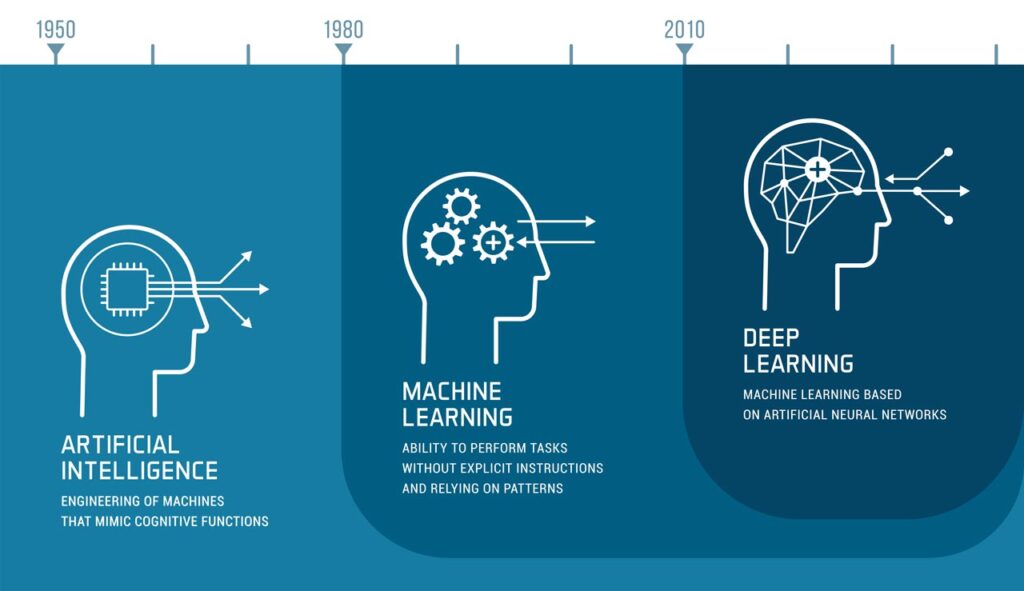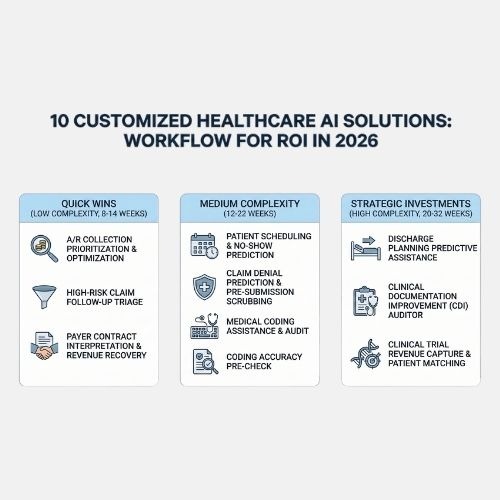Machine learning is a type or subset of artificial intelligence. Artificial intelligence, on the other hand, is a broader term than machine learning, which means that while you could call machine learning artificial intelligence and be correct, delineating ML from AI is likely more helpful. What’s more, calling artificial intelligence machine learning is a non-sequitur.
In other words, while all types of machine learning fall into the category of artificial intelligence, not all types of artificial intelligence (of which there are many) are considered machine learning.
That was a mouthful! Let’s demystify this topic a little more…
What Is the Difference Between Machine Learning and Artificial Intelligence?
Microsoft Azure does a great job of explaining the difference between AI and ML. In their words, here is how these two related terms and their associated technologies compare, by definition.
Artificial Intelligence, Defined
Microsoft Azure defined AI as “the capability of a computer system to mimic human cognitive functions such as learning and problem-solving.”
How does it work? Microsoft Azure continues: “Through AI, a computer system uses math and logic to simulate the reasoning that people use to learn from new information and make decisions.”
Machine Learning, Defined
As Microsoft Azure puts it, machine learning “is an application of AI” created through “the process of using mathematical models of data to help a computer learn without direct instruction”.
What this means, in practice, is that machine learning technology is designed to “learn” on its own (hence the “learning” in “machine learning”), creating efficiencies in automation when trained correctly.
How Does NLP Differ From AI/ML?
If you’ve ever heard of natural language processing (the technology that undergirds such programs as Google Gemini, ChatGPT, and Claude AI) that is, itself, is closely intertwined with machine learning.
In IBM’s words,
“Natural language processing, or NLP, combines computational linguistics—rule-based modeling of human language—with statistical and machine learning models to enable computers and digital devices to recognize, understand and generate text and speech.”
AI vs. ML: Going Deeper
Still feeling hazy about the above explanation? The answer to the question “What is the difference between artificial intelligence and machine learning” is not cut and dry, and we wouldn’t blame you if that were the case. This is not an isolated opinion; here’s what Google says about the difference between AI & ML:
“You might hear people use artificial intelligence (AI) and machine learning (ML) interchangeably, especially when discussing big data, predictive analytics, and other digital transformation topics. The confusion is understandable as artificial intelligence and machine learning are closely related.”
The Case of the Curious Chef: Comparing AI vs ML With a Cooking Analogy
Here’s an analogy to help you better understand the answer to the question “How is artificial intelligence different from machine learning?”.
Imagine a chef as an AI system. The chef can do many things, like cook sauces and sauté meats; make salads, and bake breads. ML is one of the chef’s skills. Think of it as the chef’s ability to learn and improve upon one or more cooking skills over time.
Can the chef bake a boule or create a salad without ML? Sure! but the salad might not be as good as it could be. For instance, maybe patrons prefer endive whole, but romaine chopped. Maybe more patrons prefer their salad chilled, or their dressing on the side.
With ML, the chef can learn what ingredients go well together, how to dress the salad perfectly (or leave the dressing on the side), and how to present food in a pleasing way that caters to the target clientele.
Similarly, AI systems can perform tasks without ML, but they might not be as efficient or accurate as they could be. In other words, ML systems help AI systems learn from data and improve performance/output over time.
What Are the Use Cases of AI & ML?
The professional sphere continues to find new use cases for both artificial intelligence and machine learning across sectors, from banking to healthcare enterprises to new startups, and more.
Curious about how your business could benefit from AI/ML technologies? At Digital Scientists we provide custom software development services, some of which utilize AI and ML.
Learn How AI/ML Could Help Your Business
If you’re looking to drive innovation, capitalize on data insights, and enable scalability for your business, we can help.
Our focus on AI extends beyond just the technology; we prioritize creating tangible business value and catering our AI-driven strategies and solutions to your unique business needs, helping you stay ahead of competitors and industry trends.
Ready to learn more? Contact us now to start leveraging AI/ML software development to your advantage!



